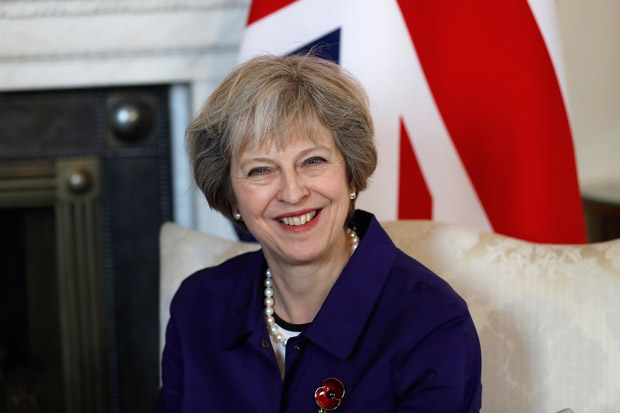When a Prime Minister flies off abroad with a few business-leaders it is seldom worthy of comment. Such trade missions tend to achieve little, beyond generating headlines intended to flaunt politicians’ pro-business credentials. But with the impending departure of Britain from the European Union,-Theresa May’s visit to India next week, accompanied by Sir James Dyson and others, has huge significance. For the first time in four decades, a British Prime Minister can discuss doing trade deals — something which we have until now been forced to contract out to officials in Brussels.
Mrs May has chosen her destination shrewdly. With its rapidly expanding economy and the gradual liberalisation of economic policy, India is everything that the EU isn’t. It has the fastest-growing GDP of any large nation. Its people speak English. In this year’s World Economic Forum’s global competitiveness index, India jumped 16 places to number 39 — above Italy, Portugal and Greece. While it is still poorer than most western economies, it is the direction of travel that matters. It’s an opportunity economy, rather than one where fading industries are protected and propped up.
While the Prime Minister is to be congratulated on the initiative her trade visit to India represents, she will find upon arrival that there is much dismay at her plans to limit Indian students who wish to study in Britain. The inclusion of overseas students in the government’s net migration target of 100,000 a year will deprive our universities of much-needed money. In future, it will also mean losing what influence we derive from having educated those in positions of power abroad. A recent study found that one in ten world leaders studied in Britain.
The number of Indian students coming to study in Britain has plunged from 39,100 to 18,300 over the past five years, thanks to an overly restrictive visa system, which makes it hard for students to apply in the first place and subsequently tries to stop them from taking up jobs in the UK once they graduate. Britain voted in the referendum to control immigration, but graduates who have managed to secure well-paid jobs are exactly the kind of migrants that a controlled immigration system should be encouraging. The purpose of Mrs May’s visit is to renew ties with other nations. And taking in foreign students is precisely the way to do this.
David Cameron visited India early in his premiership, too, hoping to create a new special relationship. He had not thought it through. At the time, Britain was doling out foreign aid to India — with the accompanying neocolonialist proviso that the Indian government had the wrong spending priorities. Britain gave up the right to decide those priorities in 1947, yet Whitehall was very slow to understand this. Labour’s last foreign secretary, David Miliband, left India roundly detested after lecturing it about Kashmir. Anglo-Indian relations have not improved much since.
As a result, Mrs May’s opportunity is greater. Britain’s historic links with India make it an ideal place to begin forging our post-Brexit relationship with the world. We share a common language and there is a huge Indian diaspora in the UK. The subject of Indian investment in Britain tends to be dominated by Tata, which owns Jaguar and Land Rover, as well as its troubled steel plants. Tata alone employs 69,000 people in Britain. But there are plenty of other fast-growing Indian businesses operating in the UK, such as the IT companies Infosys and HCL Technologies.
During the referendum campaign, Remain’s argument seemed to rest on the premise that only the EU, with all its negotiating might, would be capable of doing trade deals with countries outside Europe. The reverse is true. Free trade talks between the EU and India were launched nine years ago, but abandoned after 12 formal rounds of negotiation. The EU moves at the pace of its most reluctant member state. Or, as was the case in the recent Canadian trade deal debacle, the pace of the most reluctant region of its most reluctant state.
Mrs May should look to Switzerland, which managed to complete trade deals with Canada and Japan in 2009 and China in 2014. Switzerland succeeded where the EU has failed because it concentrated on the export of goods in which it specialises — such as chocolate, cheese, cereals and watches. Highly desirable though it might be to have a free market in services, it makes no sense to hold up a deal to lift tariffs on goods. Britain should be seeking to make a deal on goods quickly with India, to take effect the moment we leave the EU, and to use this as a starting point for further liberalisation.
Perhaps the key test for the Prime Minister is whether she would loosen tariffs on agricultural imports. As a result of its powerful farming lobby, the EU has long refused to do this, and it is a huge barrier to the development of economies such as India that its food exports are all but blocked from European markets. It makes no sense at all for a country such as Britain, which is not self-sufficient in food, to tax food imports.
India has good reason to be frustrated with the EU, which views trade with the country as a threat. This is the perfect time for Mrs May to say that — on the contrary — she sees India as an opportunity, and that Britain is keen to renew the close trading relationship we once enjoyed.






Comments